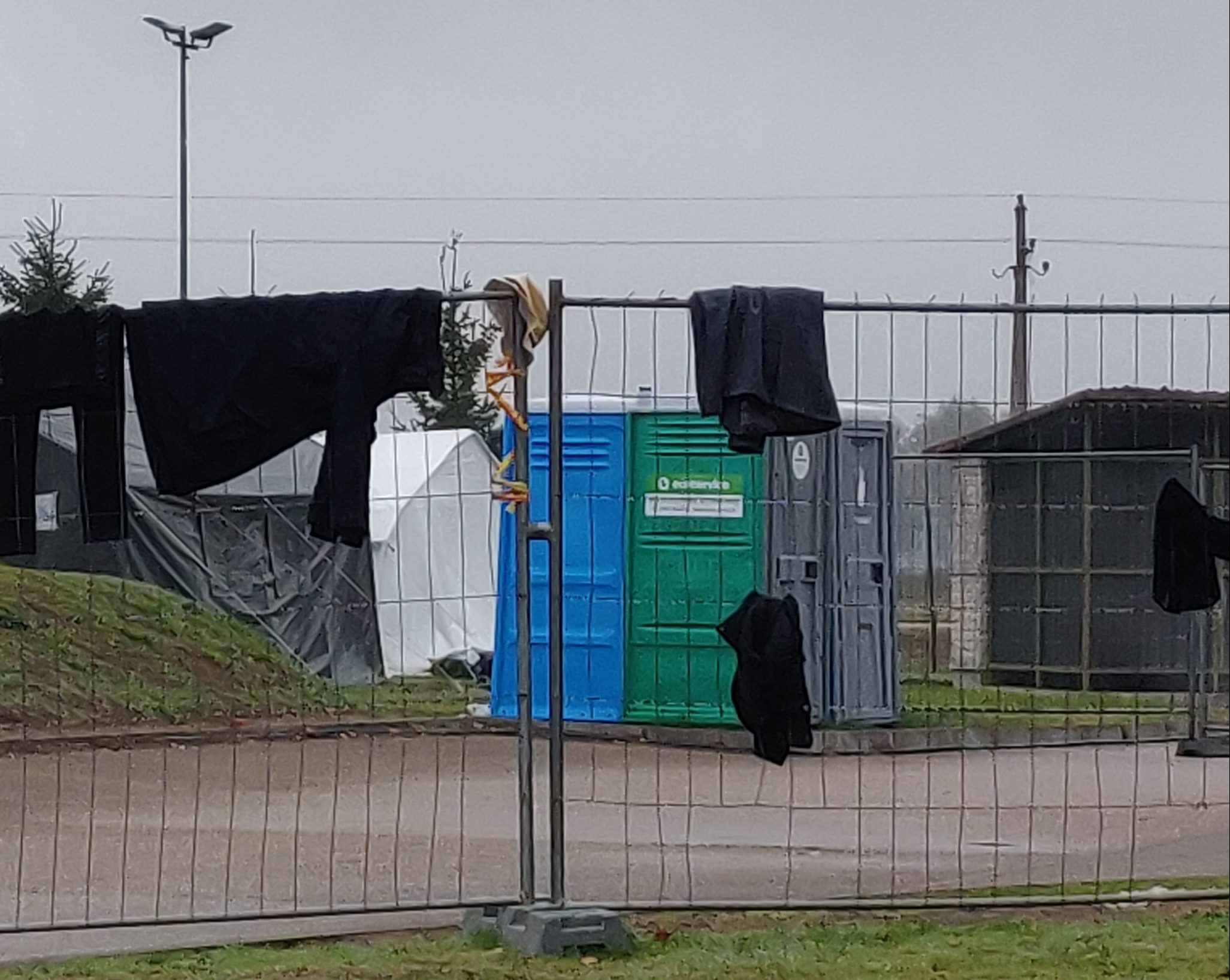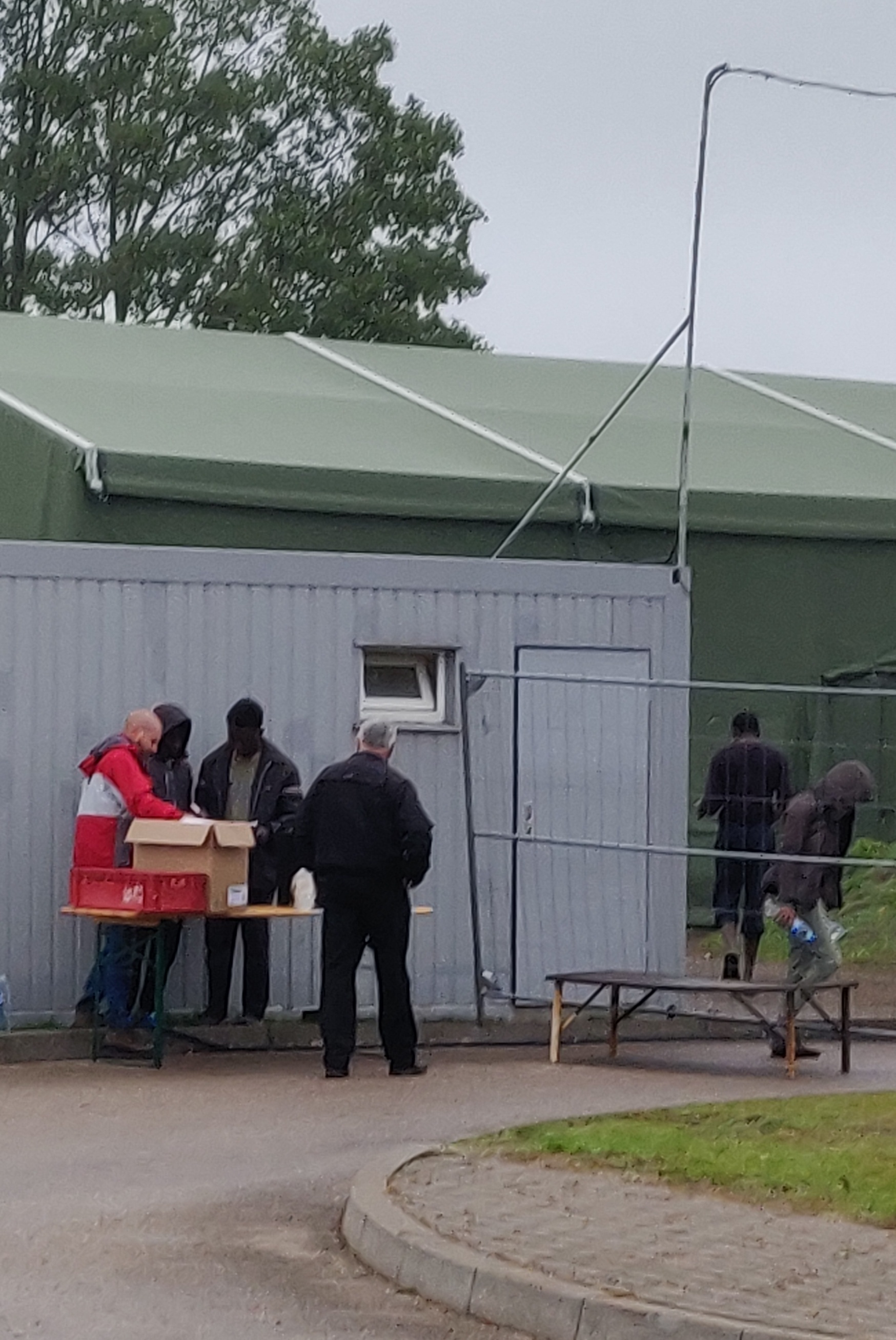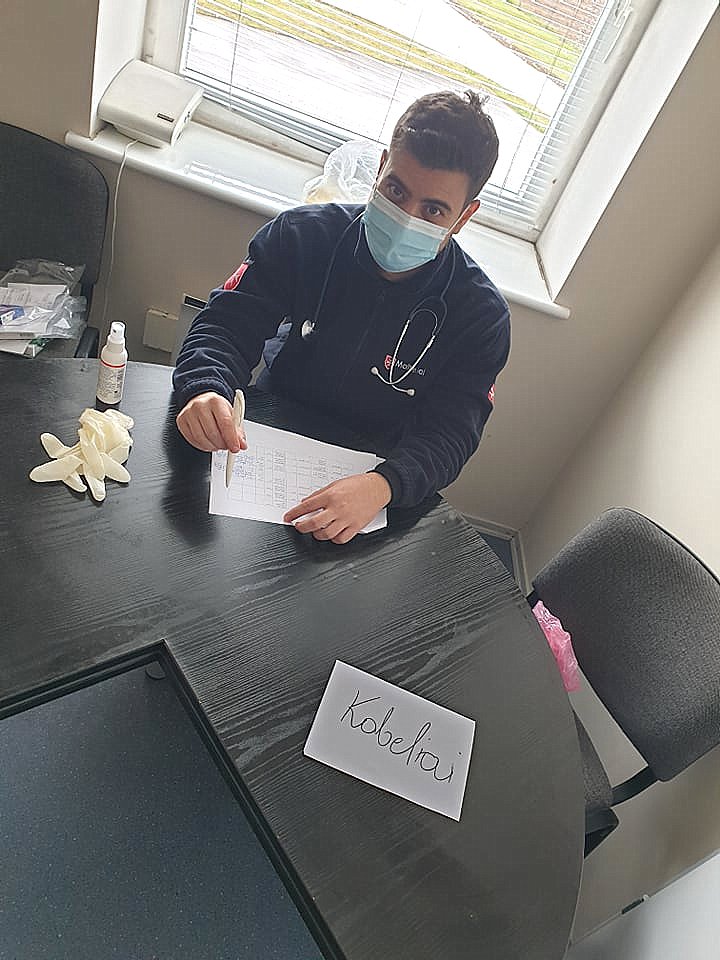The Question of Migrants: Hatred won’t Help Us to Get Along, Let’s be More Sensitive

On the day we visited Kabeliai and Druskininkai border crossing points, the thermometer shown around 10 degrees Celsius. It was even cooler at night. And very humid. Such temperatures are simply dangerous for the health of migrants from the South living in tents at the barriers. All the refugees interviewed said that they were cold, that it was damp to sleep. Although the plan was to get people out of the tents and into camps prepared for long-term stays by the beginning of October, the migrants are not being moved out of the barricades until now.
There used to be more of them here, but now families and minors without parents have already been moved to places where conditions are better. Now only families without children, single men and women remain in the camp.
The single men in Druskininkai are living in a large tent heated by diesel, but the temperature inside is not very comforting: it is best to wear winter clothes in the tent, but most of them walk around in slippers. So when people are invited to talk and share the clothes they have brought, the first thing they ask about is warm socks and shoes.
To make it warmer and to allow people to try on the clothes, Donatas Urbelionis, the commander of the Kabeliai firewall, prepares a small room for us. The women come first. One Iraqi woman, having received a basket of women’s clothes, asks to be shown what will go to the men – she is worried about what her spouse will get and whether it will fit him. Oh, those women – even in such conditions, they try to control…
We see a girl quietly waiting for her turn. When questioned, she turns her eyes, tears welling up, and tells us her sad story. She is 17 year old Esther from Ivory Coast. She is here in Lithuania with her twin brother. She says she has been a refugee for 2 years and has known nothing about her parents for the same amount of time. This worries Esther, who doesn’t even know where to look for them, but it’s good to have two brothers, it’s getting braver. She had never even heard of Lithuania before they were put on a bus and taken to the woods. The girl is scared for her future and wants very much to find her parents.
Shyly, 3 Indian nationals enter the room. They are from the region of Kashmir, where they have been persecuted for their religion. All three men are unanimous in saying that they are fine here, that the food is delicious and even the spices are not lacking. Their religious beliefs are very peaceful – no whining, no distraction, no concentration – which gives the men the strength to stick together, to be present in the here and now, to enjoy life.
A group of Iraqi men arrive to pick up their clothes. One of them is apparently much younger, underage, and speaks only his own language, so the young man’s story is told by his tent mates. He turns out to be a 14 year old teenager, sent by his family to seek a better life. With a dad, a mum and several sisters, the family hopes that the boy, their only son, will get the education he needs here in Europe and help them all out of poverty. He couldn’t get an education in his home country…
We heard many people’s stories that day. It was heartening that not all of them were so sad, that most of them were not angry. These were lessons in human survival, where everyone wanted to tell their story from “over there” but also to reveal their hopes “over here”.
Majid, a medical volunteer from Vilnius University Hospital Santaros Klinikos accompanied us to the roadblocks. He speaks Arabic, French, English and Lithuanian, so he was even able to advise the migrants in their native languages. The doctor asked each of them questions about their health, checked their heart and respiratory function, and analysed their symptoms as needed. After the check-ups, Majid prepared health profiles of the interviewed migrants, which were handed over to the medics in charge of the specific checkpoints. The doctor’s skills not only helped to clarify the causes of the patients’ symptoms, but also contributed to increasing mutual understanding.








